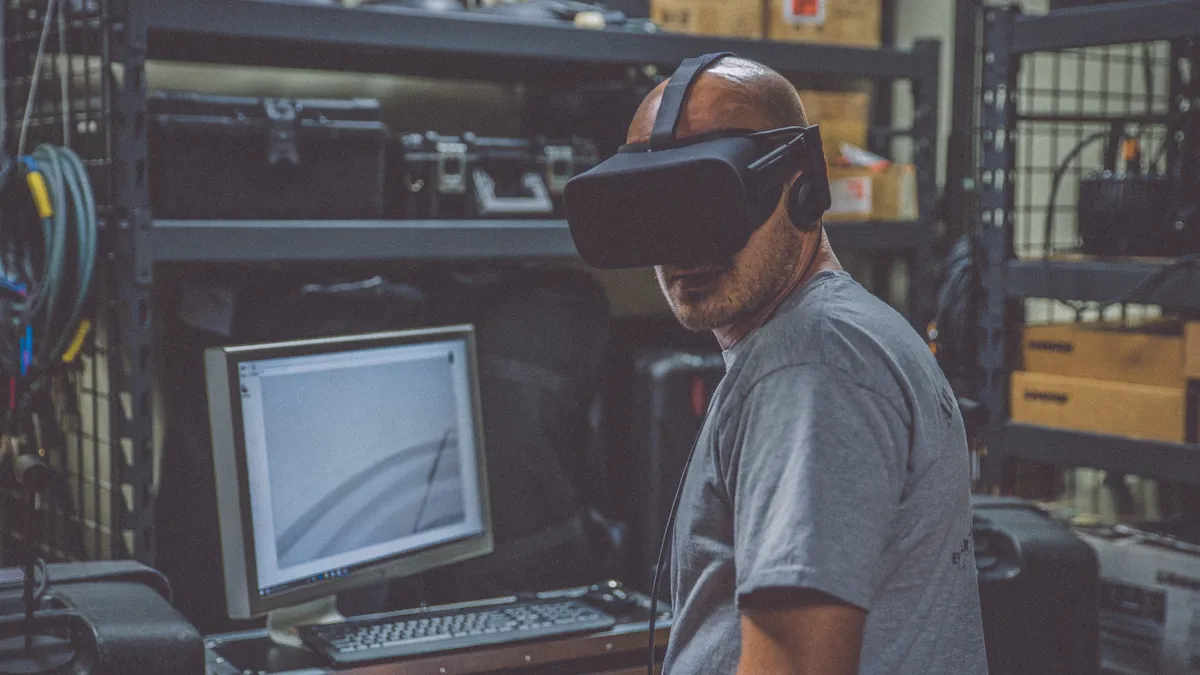Dive Brief:
- Immersive learning solutions — including virtual reality, augmented reality, mixed reality and extended reality technology — are "poised for dramatic growth" in the next five years, according to a report from JFFLabs, a division of workforce and education nonprofit Jobs for the Future (JFF).
- JFF said immersive tech could provide broader access to education and training, particularly for underserved populations. The market for vendors encompasses solutions for both technical and "soft" skills and for various industries, with applications launched for "frontline" workers in law enforcement, food safety and warehousing, among others.
- "New tools for VR and AR are transforming technical, managerial, and all elements of soft skills training because they create real-world learning experiences that stick," industry analyst Josh Bersin said in a statement accompanying the report. "As this report describes, immersive learning is built on decades of experience in technology-based training, and it is now one of the fastest growing segments of the $200 billion plus corporate training industry."
Dive Insight:
VR, AR and related technologies have emerged as one of the top HR industry trends going into 2020. Industry analysts previously told HR Dive that the tech may be especially helpful for situations in which the desired experience is either too expensive, infrequent or dangerous to provide hands-on training.
Last year saw a number of organizations embracing immersive tech solutions for frontline employees. Retailers like Walmart have now started to use VR skill assessments to determine whether to promote or give pay raises to certain employees. Others, including a North Carolina-based biotech, are building out centers dedicated to the training with the hopes of cutting training costs while improving retention.
One 2019 survey indicated there may be a disconnect between workers and employers when it comes to desired training technologies. In the survey, commissioned by Genesys, more than half of employees in every job category measured said they were interested in AR and VR training. However, employers in the survey said they preferred training from artificial intelligence and similar technologies.
Regardless of training method, personalization and accessibility are key factors to consider when planning talent development initiatives for diverse workforces, according to experts who previously spoke to HR Dive.














